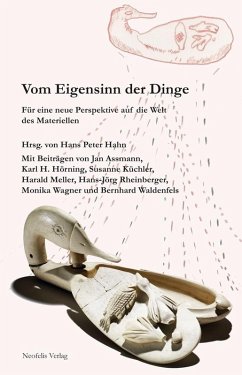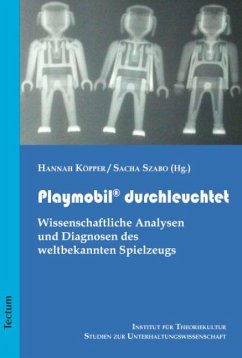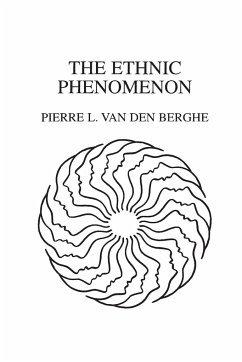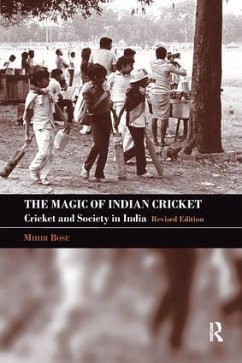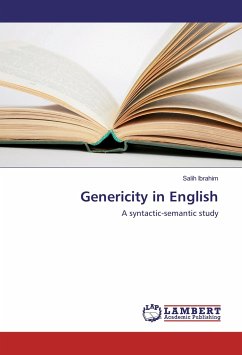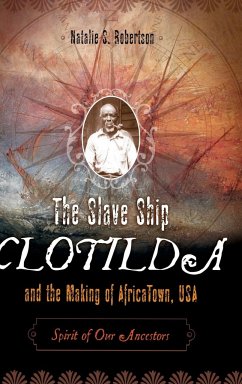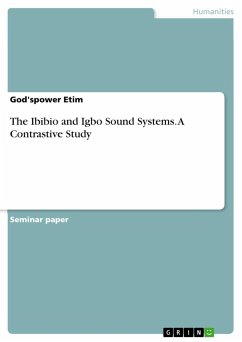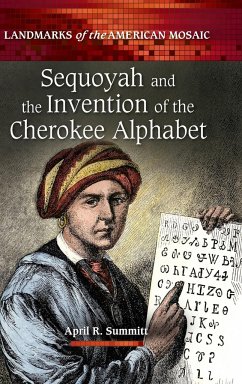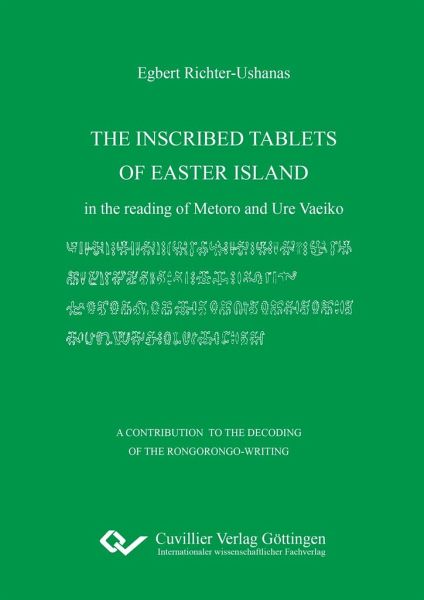
The Inscribed Tablets of Easter Island. in the reading of Metoro and Ure Vaeiko
Versandkostenfrei!
Versandfertig in 1-2 Wochen
49,50 €
inkl. MwSt.

PAYBACK Punkte
0 °P sammeln!
The tablets of Easter Island that are known under the name of Rongorongo, are still regarded as undeciphered, since their reading by the natives Metoro and Ure Veiko seem to be unintelligible and it cannot be decided, to which tablet they may refer. But when the subject or category of a tablet has been recognized, the names of the signs, as they are called by the native readers or chanters become meaningful too, and if contradictions occur, they can be removed by the investigation of the structure of the signs. The subject can be deduced from the contents of the tablet and the partly known ora...
The tablets of Easter Island that are known under the name of Rongorongo, are still regarded as undeciphered, since their reading by the natives Metoro and Ure Veiko seem to be unintelligible and it cannot be decided, to which tablet they may refer. But when the subject or category of a tablet has been recognized, the names of the signs, as they are called by the native readers or chanters become meaningful too, and if contradictions occur, they can be removed by the investigation of the structure of the signs. The subject can be deduced from the contents of the tablet and the partly known oral tradition of the island. It is always based on the religion of the tribal community, into which the youths are admitted by initiation as it is known from other tribes and cultures. To become acquainted with the tradition it is necessary to learn the language of Easter Island known as Rapanui nowadays, whereas the Island is called Rapa Nui. Its original words and its grammar has only been preserved in the inscriptions of the tablets. Besides, one should be free from cultural prejudice know as eurocentrism, otherwise it will be impossible to understand the inner world of the natives.





